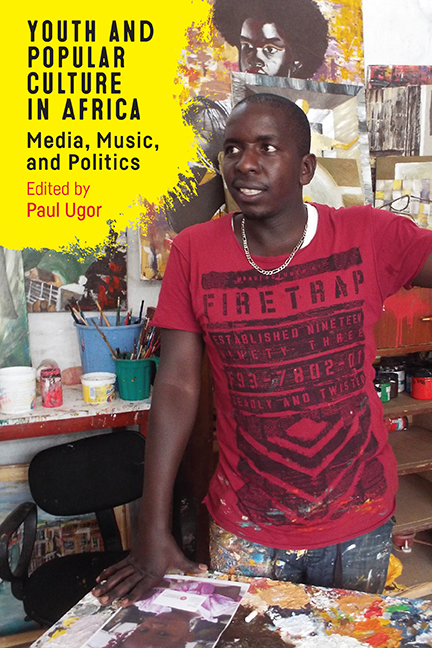Book contents
- Frontmatter
- Dedication
- Contents
- Preface
- Introduction: Youth, Media, and Popular Arts Culture in Contemporary Africa
- Part One Media Globalization, Popular Afro Hip-Hop, and Postcolonial Political Critique
- Part Two Popular Online Media and Democratic Participation and Engagement
- Part Three Popular Arts, Everyday Life, and the Politicization of Culture
- Afterword: Young People and the Future of African Worlds
- Notes on Contributors
- Index
5 - The Politics of Pleasure in Nigerian Afrobeats
Published online by Cambridge University Press: 26 May 2022
- Frontmatter
- Dedication
- Contents
- Preface
- Introduction: Youth, Media, and Popular Arts Culture in Contemporary Africa
- Part One Media Globalization, Popular Afro Hip-Hop, and Postcolonial Political Critique
- Part Two Popular Online Media and Democratic Participation and Engagement
- Part Three Popular Arts, Everyday Life, and the Politicization of Culture
- Afterword: Young People and the Future of African Worlds
- Notes on Contributors
- Index
Summary
The domains of leisure and consumption promote socialization of the self with the help of generation co-members aware of their shared history and destiny. When using new media (and engaging in leisure and consumption) young people are, virtual or real, regarded as fuller members of their community.
—Henk Vinken, “Changing Life Courses, New Media, and Citizenship.”Introduction
Although it has become common in African cultural studies to rate Nollywood as the most popular art form in Africa, it is perhaps more accurate to argue that the booming and vivacious Afro hip-hop music is unquestionably the popular arts genre with the highest mass appeal in Africa today. The continental reach and global popularity of Afro hip-hop were brought home to me in the summer of 2015 when I embarked on a research trip to Ghana, Kenya, Nigeria, and Uganda. The music of Nigerian Afrobeat superstars such as Timaya, Flavour, Davido, Whizkid, Tiwa Savage, and other young musicians from Nigeria was being played enthusiastically in bars, nightclubs, hotel lobbies, public buses, street shops, radio and television stations, private homes, and on personal cell phones. Not only did people know the lyrics of these artists’ songs, but they could dance to the music with the unique swag of the average Nigerian urban youth. This inescapable presence of contemporary Nigerian Afrobeats across Africa is not unique, for it emblematizes the wider popularity of the hip-hop genre beyond the continent's shores. As Khalil Saucier has observed, “Today, hip hop is arguably the fastest growing component of African youth culture. It can be heard in vibrant and chaotic urban areas and desolate and pastoral rural areas of Africa. It can be heard in both private and public spaces, while being piped through loudspeakers of one's personal music device.” With its current population of about 1.2 billion, out of which almost 77 percent are young people below the age of thirty-five, there is no doubt that the Afro hip-hop genre, created and patronized by African youth, is the most popular art form in the continent today. Thus, any meaningful conversation on popular arts culture in Africa must continue to address the place of this popular genre as it stands at the very center of the continent's cultural imagination.
- Type
- Chapter
- Information
- Youth and Popular Culture in AfricaMedia, Music, and Politics, pp. 132 - 160Publisher: Boydell & BrewerPrint publication year: 2021
- 1
- Cited by



